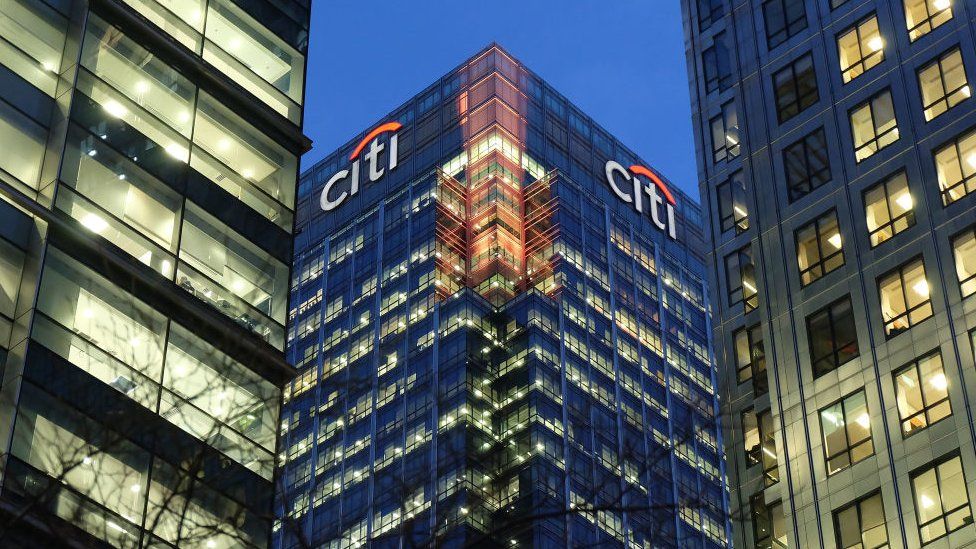The benchmark Stockholm OMX 30 share index fell by 8% at one point on Monday morning.

Image source, Getty Images
US banking giant Citigroup has said that one of its traders made an error in the so-called stock market “flash crash” in Europe on Monday.
A flash crash is an extremely fast fall in the price of one or more assets, often caused by a trading mistake.
Trading was briefly halted in several markets after major share indexes plunged just before 8am GMT on Monday.
Nordic stocks were hit the hardest, while other European indexes also plummeted for a short time.
“This morning one of our traders made an error when inputting a transaction. Within minutes, we identified the error and corrected it,” the New York-based bank said in a statement late on Monday.
The flash crash caused European shares to fall suddenly on a day when trading was particularly thin due to public holidays around the world.
Sweden’s benchmark Stockholm OMX 30 share index was one of the hardest hit, falling by 8% at one point, before recovering most of those losses to end the day 1.87% lower.
Flash crashes can be caused by human error, or so-called “fat finger” trades – a reference to someone incorrectly typing the details of a trade.
Such trading errors and the flash crashes they can cause are often costly. They have triggered shake ups of stock market rules and have even led to criminal convictions.
In August 2012, a computer-trading glitch at US financial services firm Knight Capital caused a major stock market disruption, costing the company around $440m.
A flash crash on the Singapore Exchange in October 2013 saw some stocks lose up to 87% of their value and resulted in new regulations being put in place to avoid a repeat of the incident.
In 2020, UK-based former stock market trader Navinder Sarao was sentenced to a year of home detention for helping trigger a brief $1tn US stock market crash 10 years earlier.
Using specially programmed, high-speed software, Sarao placed thousands of orders that he did not intend to fulfil, creating the illusion of market demand. When he cancelled or changed his bids, he was able to profit.
The activity – known as “spoofing” – contributed to market instability that led to the May 2010 “flash crash”, when the Dow Jones index fell almost 1,000 points in a matter of minutes.
The US made spoofing a crime in 2010 as part of a broader effort to tighten regulations following the 2008 financial crisis.
This video can not be played
To play this video you need to enable JavaScript in your browser.
-
- 28 January 2020

- 28 January 2020
